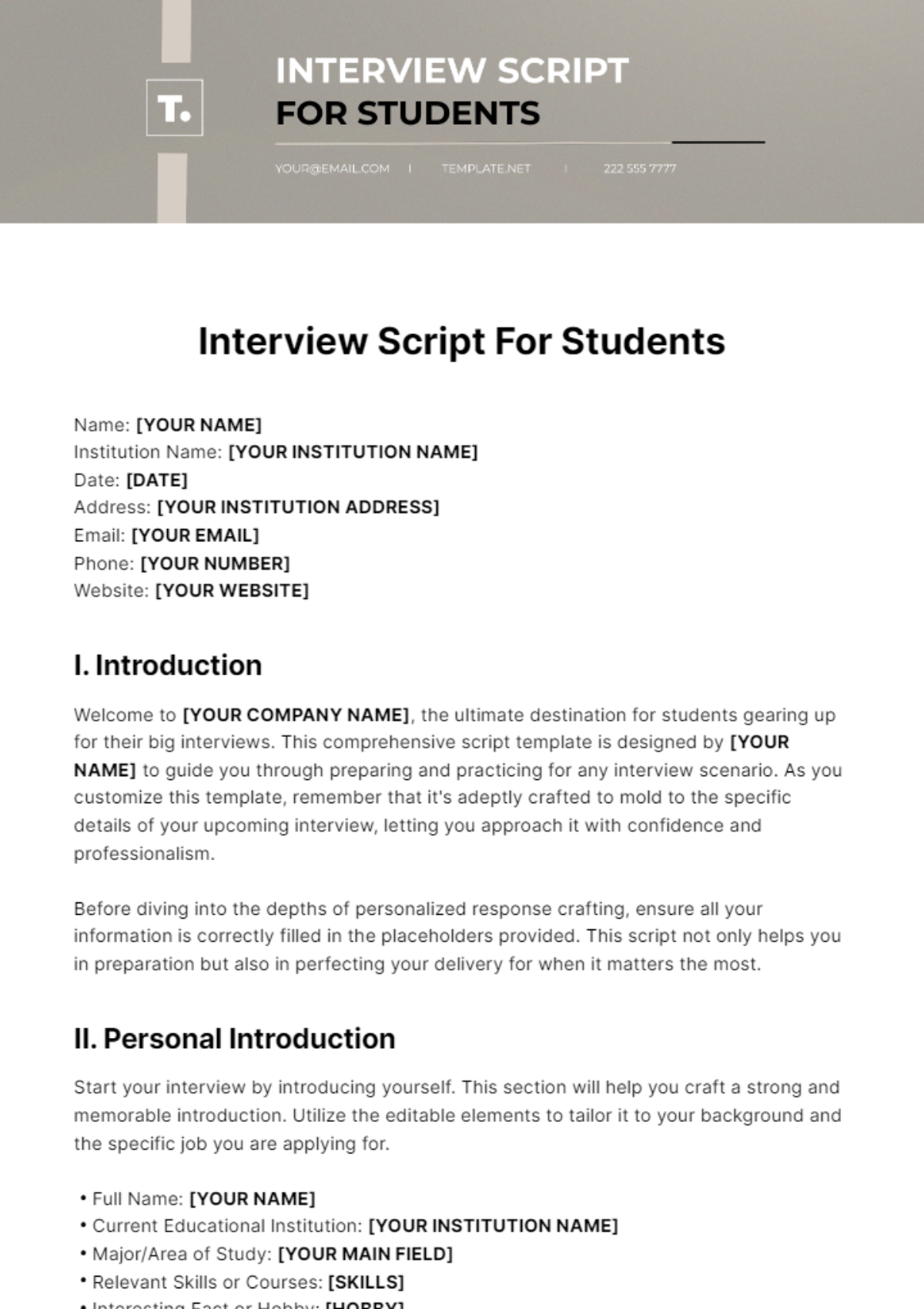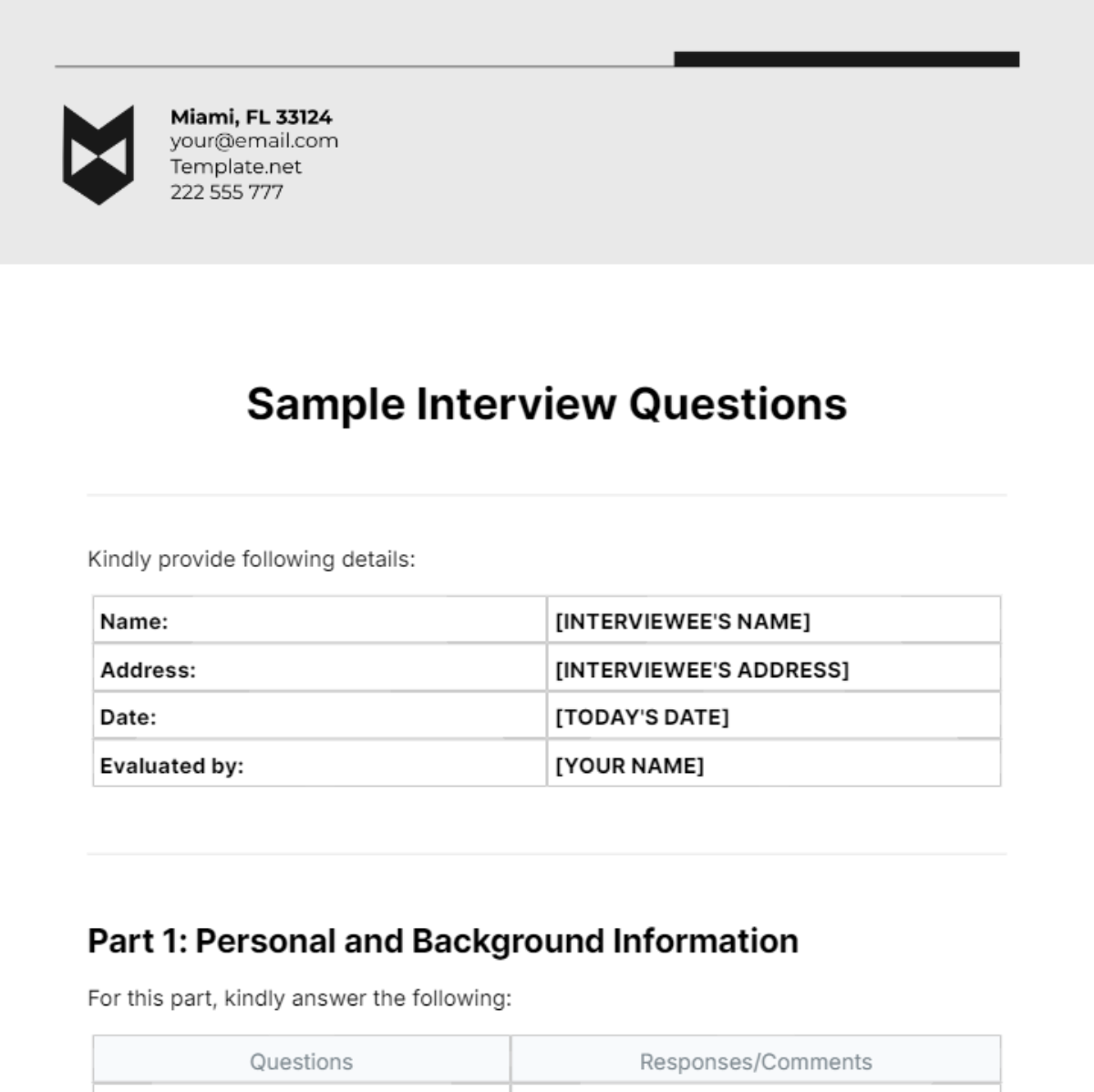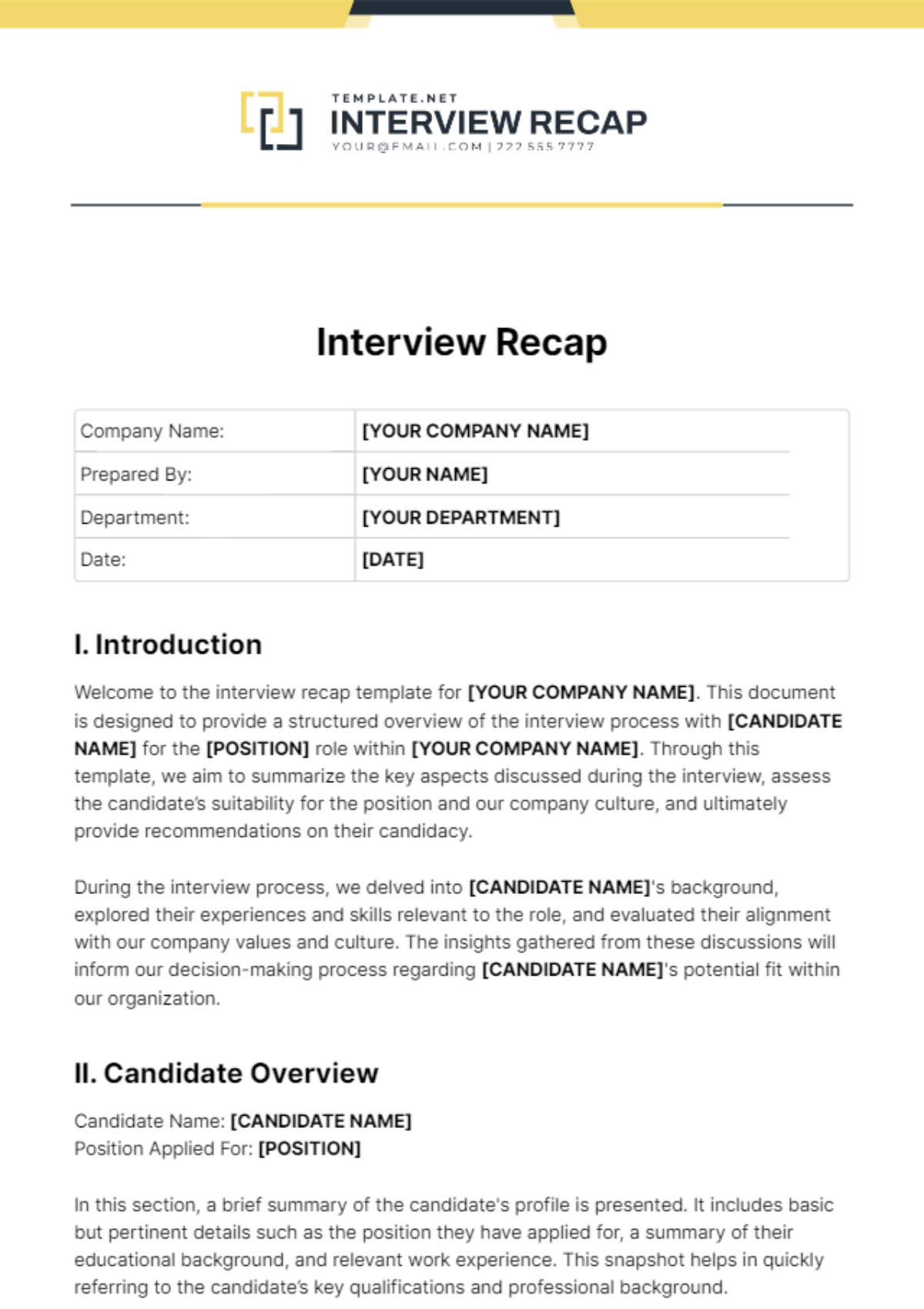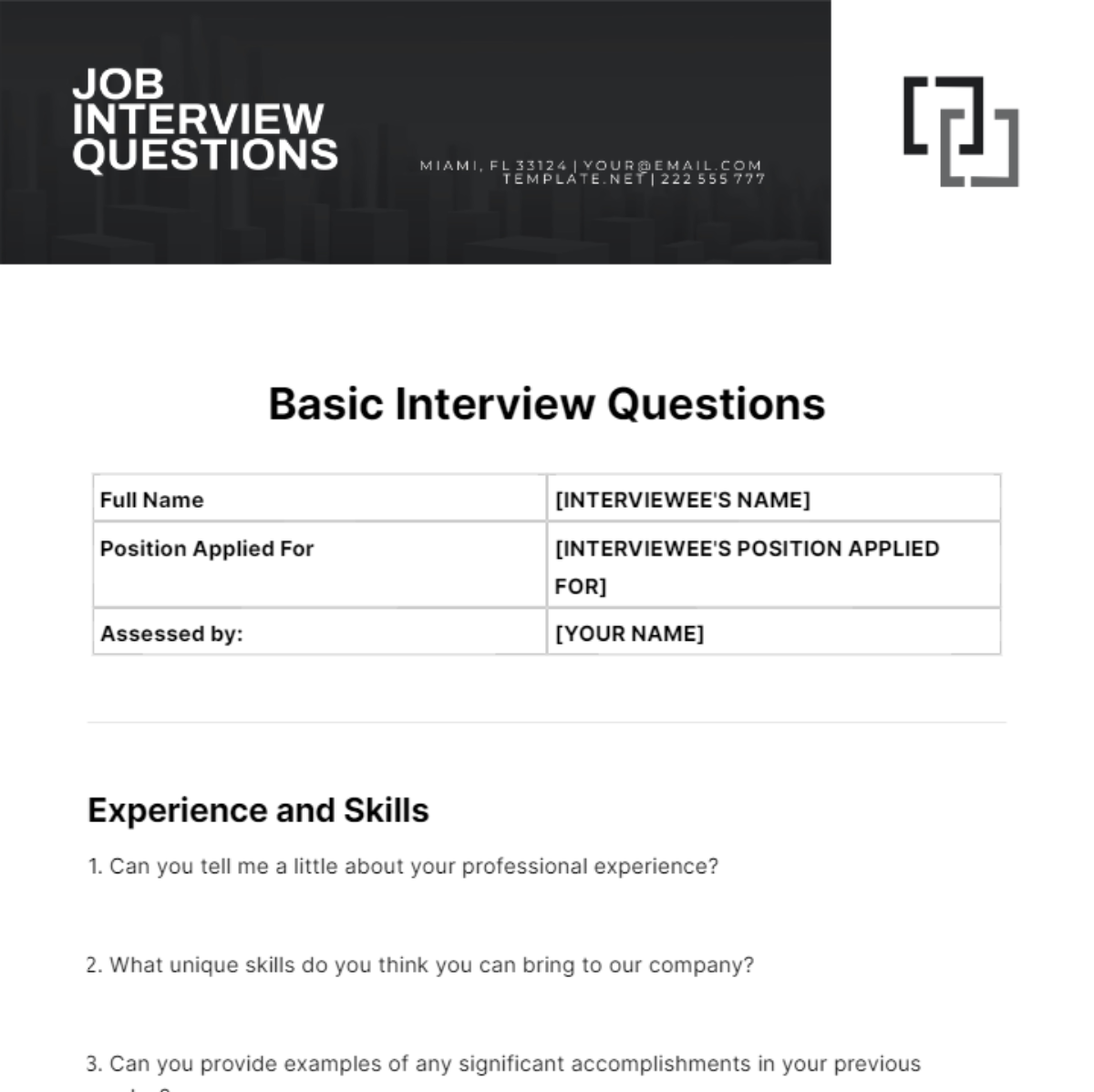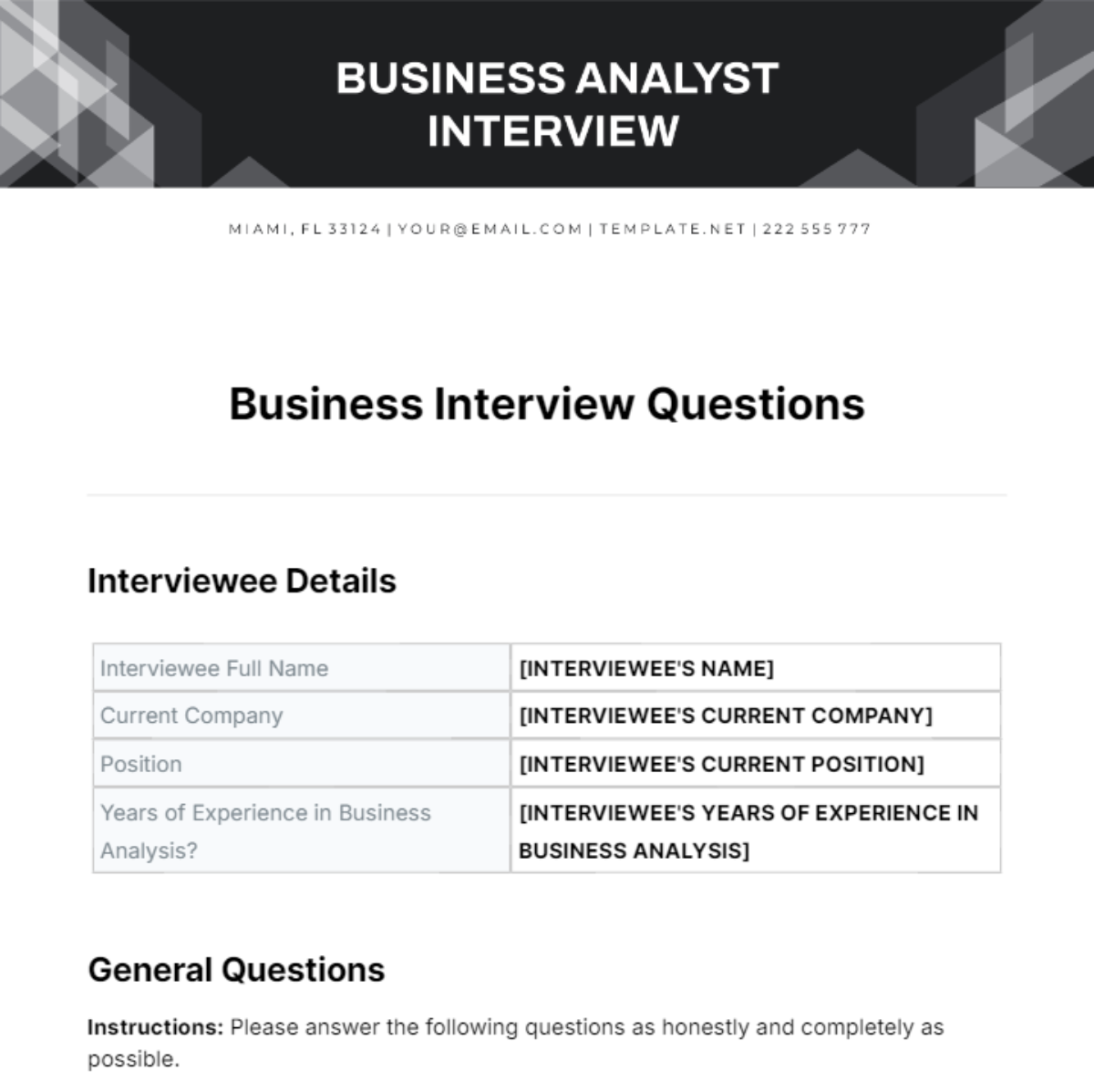Ethnography Interview
Prepared by: [Your Name]
Date: [Date]
I. Introduction
An Ethnography Interview is a qualitative research method designed to explore and understand the complex behaviors, beliefs, and experiences of individuals within their natural environments or cultural contexts. This approach aims to provide a deep and nuanced understanding of participants' lived experiences and the meanings they attribute to them. The strategy for conducting these interviews emphasizes capturing rich, contextual data that reflects the participants' authentic perspectives and interactions.
II. Participant Background
Understanding participants' backgrounds is essential for framing their responses within the appropriate context. Key elements to consider include:
Demographic Information: Gather details such as age, gender, occupation, education level, and socioeconomic status to understand the participant's social position and life stage.
Cultural Context: Include aspects such as ethnicity, religion, and community affiliations, which can influence participants' views and experiences.
Experience with the Topic: Assess prior knowledge or personal and professional experiences related to the research focus to gauge how these might shape their perspectives.
III. Interview Questions
Design interview questions to elicit detailed, narrative responses that provide insight into the participants' experiences and viewpoints. Sample questions include:
Daily Life: Can you describe a typical day in your life, including both work and personal activities?
Community Aspects: What are the most significant aspects of your cultural or social community that influence your daily life?
Specific Experiences: How do you feel about the recent changes in local public transportation services?
Meaningful Experiences: Can you share an example of a meaningful experience you’ve had related to volunteering at a local food bank?
Challenges: What challenges do you face in your work-life balance, and how do you address them?
IV. Observational Notes
While conducting interviews, take detailed notes to capture non-verbal cues and the surrounding context. Observational notes should include:
Body Language and Facial Expressions: Note any significant non-verbal communication that may indicate emotions or reactions.
Interactions with Others: Observe how the participant interacts with others present during the interview, as this can provide additional context.
Setting Description: Document details about the environment where the interview takes place.
Background Events: Record any relevant events happening in the background that might influence the interview.
V. Analysis and Interpretation
The analysis process involves systematically examining the interview data and observational notes to identify key themes and patterns. Steps for analysis include:
Transcription: Convert recorded interviews into written text to ensure accurate and comprehensive data capture.
Initial Reading: Conduct a thorough reading of the transcripts to gain a preliminary understanding of the data.
Code Development: Create codes for recurring themes or concepts found in the data.
Coding: Apply these codes to the transcript data to organize and categorize the information.
Theme Identification: Identify major themes and sub-themes that emerge from the coded data.
Interpretation: Analyze these themes in relation to the research questions, providing context and meaning to the participants' experiences.
VI. Conclusion
The conclusion synthesizes the findings from the interviews and provides insights into participants' behaviors, beliefs, and experiences. This section should:
Summarize Key Themes: Recap the major themes and patterns identified in the data.
Highlight Significant Findings: Discuss notable insights and their implications for understanding the research topic.
Discuss Limitations: Address any limitations of the study, such as sample size or methodological constraints.
Suggest Further Research: Propose areas for future research to build on the current study’s findings.


